Editors Dani and Elisa spoke to Evalena Marie about her career and life as an artist. This interview took place on April 28, 2023 over a Zoom video call.
In her previous work as an actress, Evalena Marie is known for her strong female screen presence and dimensional action heroines, including in Dark Haul (2014) and Remains (2011). Evalena is also a painter, illustrator, animator, writer, woodworker, and independent filmmaker. As a filmmaker, Evalena enjoys writing, producing, editing, and directing her own independent films. She co-founded the independent production company Midnight Cookers, which produces low-to-no budget narrative films in a variety of genres. Evalena is a proud member of SAG-AFTRA, New York Women in Film and Television, and NYC Women Filmmakers.
Evalena Marie’s Acting Reel
Elisa. What is it about storytelling that you love? And what made you want to pursue acting?
Evalena. You know, what’s interesting, I didn’t want to pursue acting. I sort of fell into it by accident. I was interested in a boy. And he was a filmmaker. And he needed an actress. And I wanted to be around the boy. So I was like, “I will become an actress.” He was making an independent film. And it honestly spiraled from there. By accident, really. I didn’t plan it. And I think that might have been one of the things that always gave me that sense of imposter syndrome around acting: I feel like most people that get into acting really want it, and they dream about it. They devote themselves to it, and they work really hard. It was never that intentional for me.
But, interestingly, the storytelling aspect of it was what made me fall in love with it. And I guess I’ve never been that intentional with storytelling either. The first thing I started doing as a kid, my first memories, is drawing little doodles, and then writing stories to go with the doodles. Then the doodles started turning into more elaborate illustrations, and I was suddenly designing the typeface and the book cover. Looking back, I never really had the insight that, “Oh, shit, I think I love storytelling,” whether it’s visual, written, whatever. But that is what I ended up loving about acting — you get to be a tool in the tool belt that another artist is using to tell their story. And you get to be your own artist in the way that you contribute to the telling of that story.
Elisa. But then, of course, you left acting, so tell us what made you want to leave, even though you really liked it.
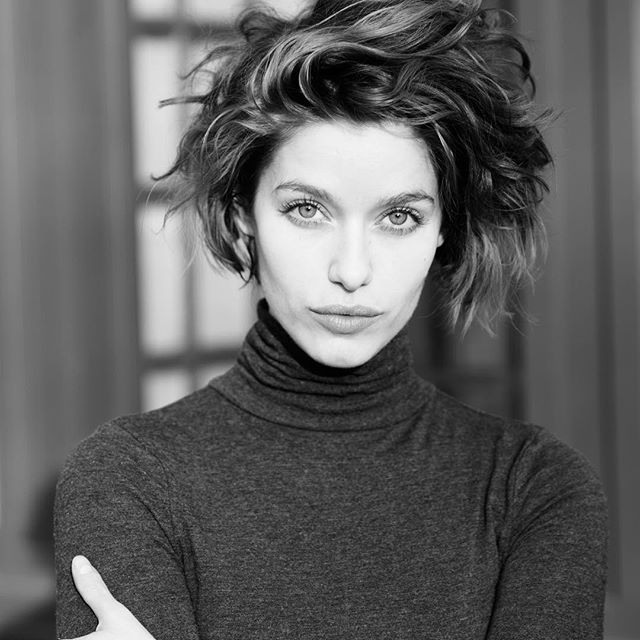
Evalena. So many things, oh my god; how do I make this a coherent statement? I mean, I think it took a very long time for me to realize that I was acting for others rather than for myself. It took that relationship ending for me to ask, “What do I actually want?” It was in questioning that that I started to understand that it wasn’t really my choice. And, not in the traditional sense of the word “tragedy” but in the emotional sense of the word tragedy, there’s something tragic about it — the fact that it was that sense of doing it for other people that sucked a lot of the joy out of it for me. There are things I wish I had done differently, things I regret, not being true to myself — even in the auditioning room, for instance, I’d go in, and I’d have that mentality of: since I was doing it for other people, I wasn’t making choices for myself. I wasn’t going in with this is how I want to do it, or this is my vision of what I would contribute to the whole picture. I went in with what’s the right answer? What did they want? And I was always guessing what the correct thing was. One of the things I learned about myself from stepping away from it is that I was really doing this for the wrong reasons.
Elisa. That is really sad. But it’s great you were able to recognize that.
Evalena. Yeah, the insight feels good; it’s very beneficial. And I’m able to take that into other aspects of life now, and be able to put everything through that filter of do I actually want this? Or am I doing this for other people? That’s almost become my little litmus test.
Elisa. I know, too, that we had talked earlier about flaws in the industry.
Evalena. Right. Where the fuck do I start? One of the things is there’s so much wrong for women, especially for young women. But there’s also, I think, inherently things wrong with just being an artist — and being a sensitive or emotional being, being a human being — because it’s a system of turning things that should exist, just for their own inherent value of existing, into commodities, which by definition has to be worth something. What is this worth? It’s worth what someone will pay for it. You’ve gotta deem it valuable or invaluable. There’s so many things wrong with the industry, but I think that’s probably the one that is wrong for everyone across the board, whether you’re male or female, a minority, or whatever category, whatever cards you’ve been dealt. I feel like that’s the problem that touches everyone in the arts industry — how do I give of myself so generously and freely while also having the restriction of having to make it earn money? That’s honestly the thing I’m contending with now.
Elisa. In what way?
Evalena. Well, I’m trying to figure out what am I now if I’m not an actress?, because, for a very long time, I used “actress” as my identity. It was like, [silly voice] “Okay, well, that answers that question and need not give it any more thought!” I peeked underneath the lid, so to speak — what’s really in there? I’m having to try to find my own sense of personal worth if it’s not tied to succeeding or failing at the thing, whatever the thing happens to be. If I’m not an actress, what am I? Okay, well, I’m still an artist, but what do I “art?” I art these various things, but they don’t earn any dollars. It’s almost that tree-falls-in-the-woods thing. It’s like: if I art, but my art doesn’t dollar, does it even art?
It’s the only thing I’m technically qualified to do professionally. I don’t know who deems that, but that’s the only thing I have done professionally, so it’s the only thing I have any sort of claim to be. So, what else? I write, but nobody reads it. So am I a writer? I paint, but nobody sees it. So am I a painter? I build furniture. But nobody outside of my household interacts with it. Do I even whittle?
[Laughter]
Elisa. And here I am thinking, “Oh, you do that? Oh, you do that?!”
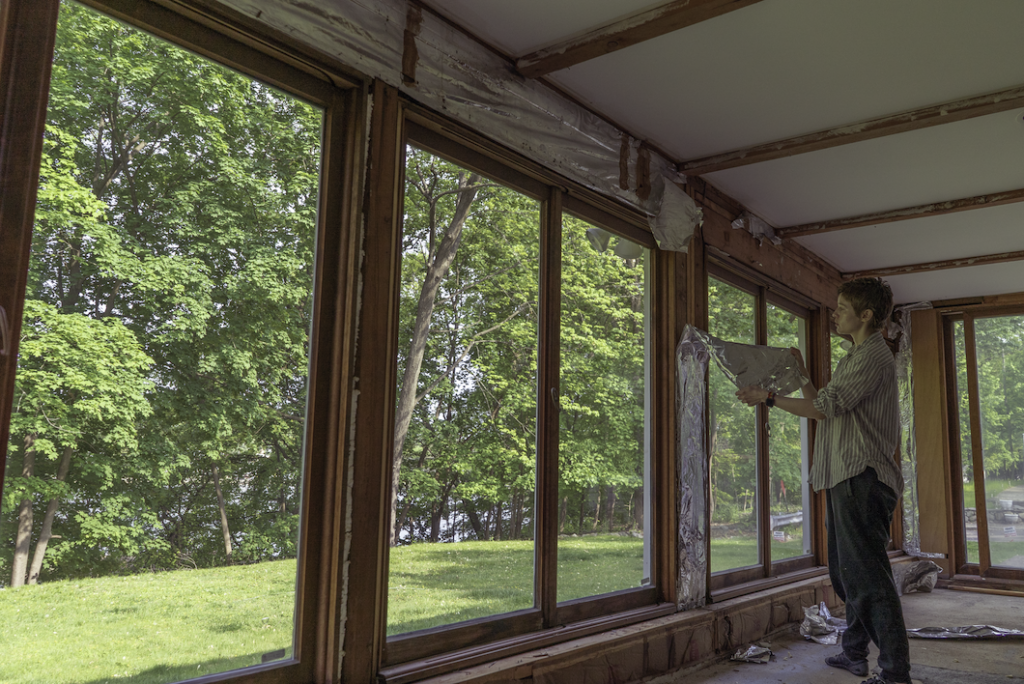
Evalena. I love doing things with my hands. I’ve got this big basket of stuff. And it doesn’t all fit together. They’re just separate. It’s like I’m building a bunch of different houses instead of continuously building the same house with the endeavor of “I’m going to live here one day.” Your question of what does it mean to be an artist in our world today? I don’t know. I don’t know. I mean, hopefully, I guess you could even call that the artistic process, right? Like, the artistic process itself is just living in question. Maybe that’s the art.
Elisa. So you like working with your hands, but how did you come to doing all these different kinds of things?
Evalena. I think those were the original things. All my life, I’ve always liked writing. And I like drawing. And I want to build a tree house. I was always wanting to make little things or do little things. It’s interesting because I had never considered acting, ever. It was just sort of a happy accident. Happy, unhappy, a combination of both. There are things I like about it, things I don’t like about it. So do I really want to keep going in this direction? There’s this sunken cost fallacy thing, right? Where it’s like, yes, well, I’ve already invested so many years, so much time, so much effort. I’ve already suffered the amount that I’ve suffered for this — do I really want to give all that up to suffer in a new direction?
Elisa. Yes, totally. And you also mentioned on the phone something about this idea in America about—
Evalena. Idea of failure thing?
Elisa. Yes. Yes.
Evalena. Yeah! Oh, my god, I think that has been contributing to my sense of almost needing to apologize for not acting anymore. Which is ridiculous, isn’t it? Because no one gives a shit. Like, no one gives a shit. But I’ve still got this idea in my head of, [mocking voice] “Oh, well, I quit something. So that makes me a failure.” That’s such a loaded identity to take on — that will really scramble your brains, once you start thinking of yourself as a failure, because then suddenly, it’s inhibiting of anything else you want to try to do. Your identity becomes failure. That definitely was affecting my ability to pursue writing in earnest, this thought of, “Well, if I let anyone read it, they won’t like it. And I’m just gonna fail, right? Because that’s what I am.” Once you take it on as your identity, it’s so toxic, and disabling and dismantling of anything that you could possibly try to build. Yeah, I think it’s true that in at least our culture there’s this messaging about how giving up is bad. If you sink cost into something, and then change course, you’re quitting, and that’s bad. And I think I was conditioned to believe that lesson — that’s one of the reasons that I’m realizing this at forty [Laughs] rather than at that time, and saying, “Oh, well, it doesn’t make me happy. I want to do these other things.” I think that messaging conditioned us all.
Dani. It’s interesting that you’re turning to these other art forms that you did before… that’s what happened to me when I stepped away from performing for a while and was trying to not identify as only a flutist — this was my task for myself, as you said, recognizing this thing has become my identity. How do I not just make that the thing? What am I underneath this? What do I want this to look like if or when I return to it? To help make sense of that, I need a little more context on the timing of you leaving acting, however much of that you want to share. And I’m interested in how it feels for you going back into these past art forms on a personal level — in a psychological, emotional sense — what does that do for you as you’re trying to re-find your identity?
Evalena. I’ll answer that part first. It feels a lot like going home, honestly. They always say, “Oh, you can never really go home after you leave.” That’s true. Because things change, right? You can never go back and have a place be exactly the same. But there’s something incredibly empowering about it being something that you’re returning to within yourself — that can be as much the same as you want it to be, or as much changed as you want it to be, which I find really beneficial. I’m in control of it, I get to choose, and that’s what feels so great. It can be as familiar as I want, or as novel and exciting and the new frontier that I want. Did I answer the question?
Dani. Yes, I think that’s really beautiful. It’s so amazing that you do all these different things.
Evalena. I don’t do them professionally, though.
Dani. I don’t do many of my secondary things professionally either. But I’m working on that being a valid aspect of my experience as a human!
Evalena. That’s what I’m working on, too! Seeing the validity in my inherent existence, not pursuing some sort of external validation.
Dani. So you’re talking about these things feeling like a homecoming — are they associated with actual home? And/or family or previous parts of your life? Or is it more a sense of self-home?
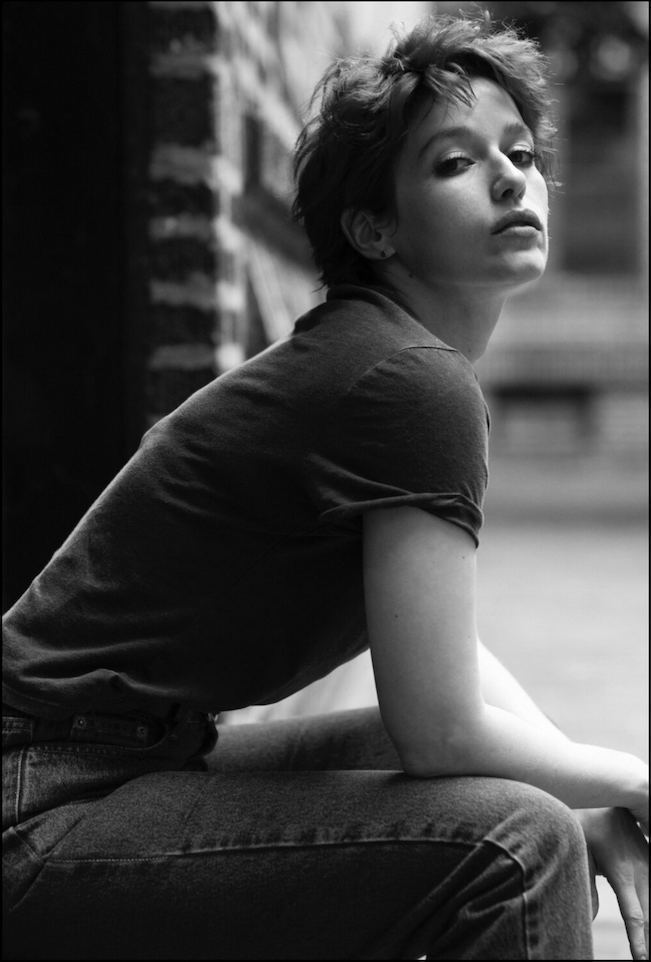
Evalena. You know, what’s interesting is that I basically was happiest when I was a kid, prior to reaching a certain age. This ties into the whole thing with how I left acting. I started having a complete mental breakdown — like complete — we’re talking suicide attempt, that got me arrested, stuck in the hospital sort of thing. But as a kid, I was really happy until the age where social hierarchies got a lot more complex. Friendships got more convoluted and difficult to navigate. Kids started picking on me. I couldn’t navigate the world anymore. And from that point on, I started masking really hard. I would observe, “Okay, she is successfully being accepted. What about her is making her acceptable, whereas I am not acceptable?” And it was like the beginning of my acting career. Honestly, I didn’t know at the time. But I started acting. And I started taking on all these different personas to try to fit in and be a person and feel like a person. That was also, coincidentally, the age where a lot of my sexual trauma started. That’s another reason why the film industry was so incredibly dangerous and toxic for me, especially. It’s like that for women across the board; it’s fucked up for women, it’s fucked up the way that the film industry takes women in, values them for youth and appearance, and then chews them up and spits them out. It’s, um, it’s really fucked up. I got taken advantage of a lot by people where I probably could have made different choices, or enforced boundaries, or even had fucking boundaries. I had no concept. I think another thing is that we’re conditioned as females in our culture that we owe people what they want from us. Be polite, be agreeable, be sweet, be nice, right? And we’re conditioned to perform all of these things. So I always believed that I owed people whatever they wanted from me. And when you are a female, what people want from you is sexual, because we’re another commodity in our culture. Especially if you’re young.
I was going to answer your question of leaving acting, so it all connected into this cycle of: I’m doing this for someone else and not for me. I’m performing my identity, and I don’t realize that I’m doing it. It just gradually started coming to a head that I had built a house for myself that I couldn’t live in. It was an uninhabitable life that I had constructed. I realized, “I just can’t keep this up.” Me leaving acting was this Bermuda Triangle of a bunch of things coming to a head at the same time: I was having a nervous breakdown, I also had experienced some very significant sexual trauma, and I also was experiencing my personal life falling apart, the end of that relationship that got me into acting in the first place. It all culminated in me being forced to face the fact that something had to change. And I tried to keep it going for a while. Then I actually suffered the “crisis point” where I couldn’t push it any farther. The laser beam switched from my career and succeeding to I need to heal myself and get well somehow because something’s wrong.
Short Film “While Fay’s Away” (2020) — the first film Evalena wrote, directed, and produced
First, I left LA, and that wasn’t enough. Then I had to step away from acting itself. But then I thought, well, I’ll still stay in filmmaking. That also wasn’t enough. Then it was, I think I just need to step away from this completely. Leaving acting was a period, over many years, of gradual retreat. I left LA, and then I did a few really small acting roles on this coast. I started stepping away more, into the writing and directing roles, around 2017 making my own little, little films. Then the full-on crisis happened in 2019 and the pandemic in 2020. Obviously, the pandemic was really horrible. Many people suffered. I’m not trying to make light of that in any way. But it just happened to be incredibly beneficial for me personally. Suddenly it was like, “Stay inside! Don’t go outside! Don’t see anyone! Don’t talk to anyone! Don’t look at anyone!” [Laughter] And I was like, okay, yes. Shut the door. It ended up delivering the things that I specifically happened to need, especially at that time, so I’ve just been using the pandemic lockdown as my burnout recovery, and it’s been really good.
Very recently, things have gotten much, much better. Up until four or five months ago, I was living in New York City. As you can imagine, for a mentally ill woman trying to hide, it fucking sucked. I could not leave my apartment; I actually learned I had become agoraphobic, developing it just from being so fucking burned out. I can’t take the sound. I can’t take the smells. I can’t take the people. All the things are moving, and I couldn’t handle it. I actually retreated into this lifestyle of only leaving the house after 11 pm and returning before 6 am. That was my survival tactic because I had to walk my dog — because, you know, I lived in a little salt box, inside a little box inside of a bigger box inside of a big concrete box [Laughs] — and he had to go outside, so it had to happen at night. It was a very weird and surreal part of my life where for several years I lived entirely at night. I just did not exist during the day.
Elisa. Did you actually sleep during the day — so you were nocturnal?
Evalena. Full-on nocturnal. Everyone was making fun of me that I was a vampire. I would fall asleep sometime around noon and wake up around 8-ish pm. I would just hide inside and wait for the world to stop so I could go outside. But in December we managed to buy a house — you see the state of this environment, right? [Laughs, gesturing to her living room] We bought this house that was built in 1950, and we were thinking, Oh, certainly all it needs are some cosmetic touches. We’ll go in there and dab a bit of paint, you know, and I’ll fix it up, I’ll do all the things, it’ll be fine. And then, it wasn’t that at all. We moved in and the sewer pipe is shattered. For a few months, we were living without a functioning sewer system. It was so wild. But you can see the house has been in various states of disrepair. It’s been this weird flip where for the last several years, I’ve basically had a functional internal environment, where my apartment was set up exactly as I needed it, but I couldn’t go outside. And now it’s flipped: I have this house, which I’m so grateful for, and I have a yard and can go outside, but I can’t really function inside the house. The house is this construction zone slash storage unit. It’s so weird. But it’s been a very interesting science experiment to observe how it affects my mental health. Prior to the last several years, I was able to hide inside, but then I couldn’t engage with the outside world. Now I have the yard, which is amazing, but now I’m in this highly disrupted interior environment. And that makes for a very disrupted internal environment.
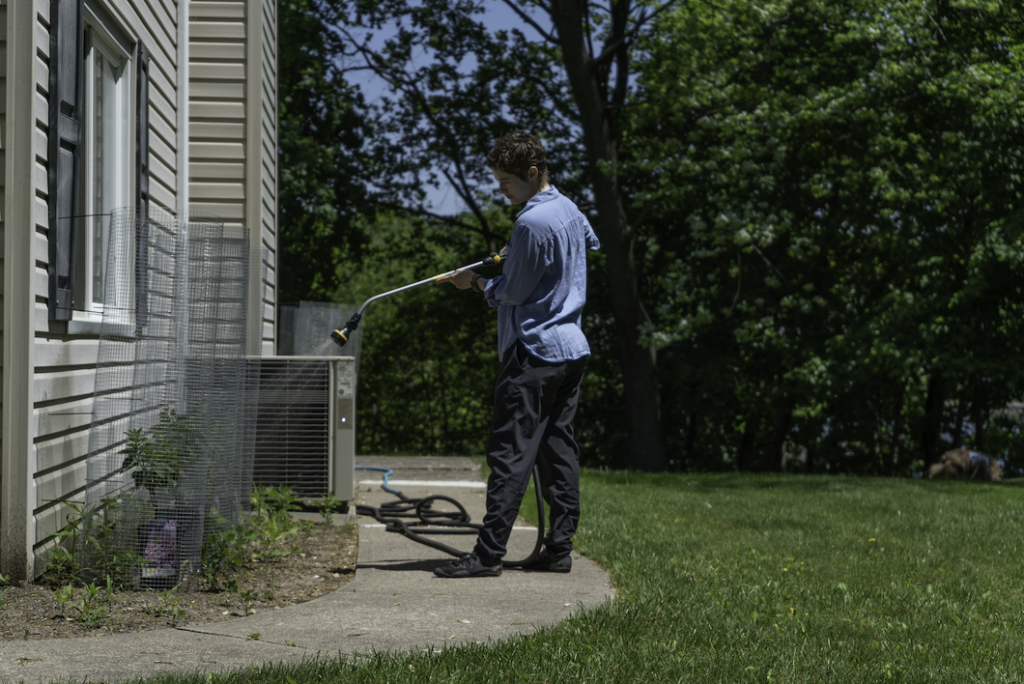
We’ll tie this back into art now. I had this fantasy that I’m gonna write this screenplay about it, and then I’m gonna make this movie. But this goes into another aspect of the art industry. Filmmaking is very much a collaborative process. You need other people to say yes; you need other people to buy in and invest in what you want to invest yourself into. Writing is a very solo pursuit, right? Painting’s a very solo pursuit, building the furniture, doing the gardening, sewing. This is a solo thing. But as soon as I want to turn this into a film, suddenly, it’s like, Evalena, you’re gonna have to come out of your shell, you’re going to have to reemerge and interface with the world again. One of my fears that I’m trying to overcome now is going back, because one of the things that contributed to my breakdown was trying to keep all the plates spinning. And I stepped away from everything. So there’s this part of me that really wants to make these films; I really want to do these things. But there’s this part of me that’s afraid of going back to what I worked so hard to separate myself from. How do I collaborate with the world again?
Elisa. This ties into what I was going to ask next — how would you decide? Because after all the toxicity you experienced in the industry and not having people to work with that you could trust, how would you decide who to work with? What things would let you know?
Evalena. The interesting thing that I’ve run into is that the people I trust and would want to collaborate with are people I had good experiences with before. The problem is that they’ve all continued to advance. And I stopped advancing back when I left LA. Can we all just go back to my level? [Laughs] Can you just all take a demotion or something? They’re further along in their careers and don’t have as much to gain from doing a collaborative sort of passion project. That hooked me into this thought process of: I can take a risk on meeting new people — [Makes a face; laughter] Right? — or I can try to graduate my projects to a level that attracts the kind of talent my peer group has advanced into. I’m at this crossroads: where do I go? In reality, it’s probably going to be a combination of both. But it’s a fear that I have to get over — this ties back into the whole identity failure thing: there’s definitely this sense of no one is going to want to work with a failure. No one is going to want to because it is an investment; it’s like asking someone to invest when you yourself don’t see the value in what you’re offering. It’s a mental hurdle. I need to get myself to a point where I can see the value in myself, and my work, and my vision, and then I think I could feel justified in asking someone else to make that investment themselves. I think it all comes back to that I need to not think of myself as a failure.
Elisa. That’s a hard thing.
Comic by Evalena Marie (March 2022)
Evalena. It is! There’s no answer! I’ve been doing so much therapy, and holy shit, there is no fucking answer. One of the things that happened for me with acting, very accidentally, was getting an agent. Then every serious actor was asking me, “How did you get your agent?” And I had no good answer. It was like, “I’m really sorry. I don’t know. I didn’t do this. It was done, for me, to me, whatever. It just was lucky. I just got lucky.” There’s no right answer. In terms of personal epiphanies. Every actor’s journey of getting an agent is going to be different. And it’s like that with filmmaking in terms of getting a budget. You’re an independent filmmaker, I’m an independent filmmaker, you got money, how did you get money? You know, x, y, z. Well that doesn’t apply to me. I realized very early on, with the film industry, that it was going to be blazing my own trail; no matter what I learned, or gleaned from multiple different sources from different people that had the success that I was hoping to eventually achieve, I would never be able to follow that same path, and I was going to have to find my own way there. And that’s what it’s like with therapy. Even with all of the therapy that she’s given me, there is just no fucking answer. Well, you’re going to have to figure it out for yourself. [Laughter]
Dani. You’re right… There’s some link between figuring out how to live as an artist, and just figuring out how to live as a person. You can take those little nuggets of wisdom or experience from other people, but they’re all going to look different brought together in your own way.
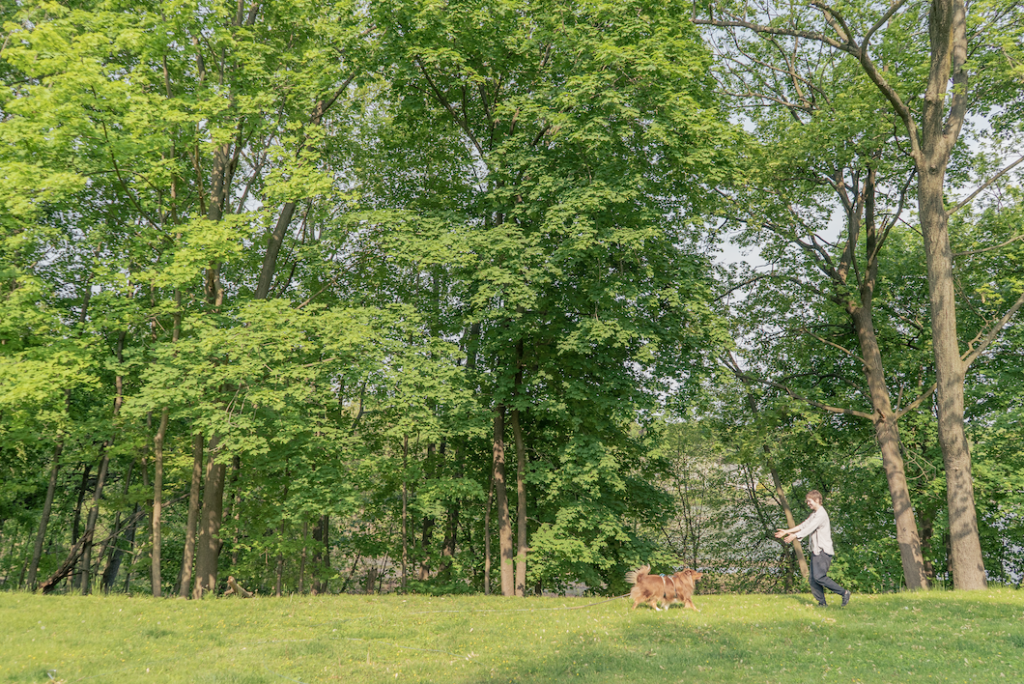
Evalena. And also, how do we distinguish from how to live as an artist versus how to live as a person? Are they the same? Or do they have to be different? I think part of my struggle is that, at least up until very recently, I grouped being an artist in with there being a right and a wrong way to do it. And when you compare that to being a person, is there a right or wrong way to do it? I don’t know. I think there’s an argument made for someone being a bad person or a good person. If you hurt people, you’re a bad person. But if you hurt people, are you not a person? You’re still a person. So can you be a bad artist? I don’t think so. I wonder because I feel this really held me back when I was trying to become a professional actor. This thought of there’s a right way and a wrong way. And I’ve got to get it right. It’s sort of like surrendering your power, surrendering your agency of your own personal ability to have something to express or having your own view or perspective, having something to share. And I think it’s sad that I never gave that gift to myself. I robbed myself of that routinely. I wasn’t acting that long, like six-ish years before it really all started to crumble. But it was long enough that there were many, many opportunities for me to have made a more loving choice for myself. And back to what you were saying, Dani, about going back to something and what that means now — what do I want that to look like? If I were to go back to acting, now I’d want to go in the room and be like, “This is what I have to say: and it doesn’t have to be what you wanted it to be. This is just what I have to say. And it’s either you want it or you don’t, and I’m fine with that.” But I could not do that before.
Elisa. On the phone you were saying you’re almost forty, and this issue comes out the day before your birthday! You said it would be such a nice moment talking about all these things, and then turning forty. So tell us about that.
Evalena. No, it’s true! I think about what I’ve learned from just being a woman in our culture, and what I have learned from being an actress in the filmmaking culture. Because really they’re the same; they’re just different levels of toxicity. One is more diluted, and the other is the concentrated form that informs everything else. But what I’ve learned from being a woman in our society is that my value is based on my youth and my “appearance.” You see this when you’re a kid, then you hit puberty, and you go into this brainwashing thing where you just see the world differently. Then you get older, and you’re like, “Oh, it was all a lie!” [Laughs] And you think, “I was such a doofus to believe that!” One of the things that I’m looking forward to is that I can really stop giving a shit. That’s what I’ve decided for myself; forty is that number. It’s okay, permission granted; you can stop giving a fuck now. Because there’s also something about our culture that has taught us that women over forty are fairly invisible. It’s like this Madonna song [“Material Girl”] — outwardly, it would seem like Madonna is making women look bad, but when you think about it in terms of what she’s saying, it’s, “Okay, you set up the rules for this fucking game; I’m just going to play by them to my best advantage.” I think I’m doing that now. Except I’m deciding that forty is my permission to do that; I can use the rules of the game against you. If I’m not fuckable over forty, then I don’t have to give a fuck over forty [Laughs]. And I can just release all of that and not let that be a part of my life anymore. Let’s be honest, I started a little early [Laughs]. I did. I’m not forty just yet. And I would say I’ve been dipping my toes into this for the last few years. But I’m really looking forward to it. I’m looking forward to not trying to be young anymore, trying to be attractive anymore. I think for human beings, we look for anchors or milestones of a before and after. There’s something really cathartic about the number forty because of what I have been conditioned to believe forty means. It feels good genuinely. When I was acting, definitely some part of the mental assault was that my worth was my youth and my appearance and what those things provided to other people. That was a damaging mindset. And it’s not like you have to buy into all of this shit if you’re a woman; there’s lots of women that don’t buy into this shit, thank God. But I was one of the women that drank the Kool Aid. I believed the lie, that my self-worth was determined by what other people told me was valuable about me. It’s very relieving to leave all of that bullshit behind, and focus on the things that are actually important to me. In stepping away from the things that were hurting me, that’s given me enough space to ask, “What do I actually want?”, actually be able to think about that, and come up with an answer of: What do I enjoy? What makes me happy? What do I actually want to do with my time?
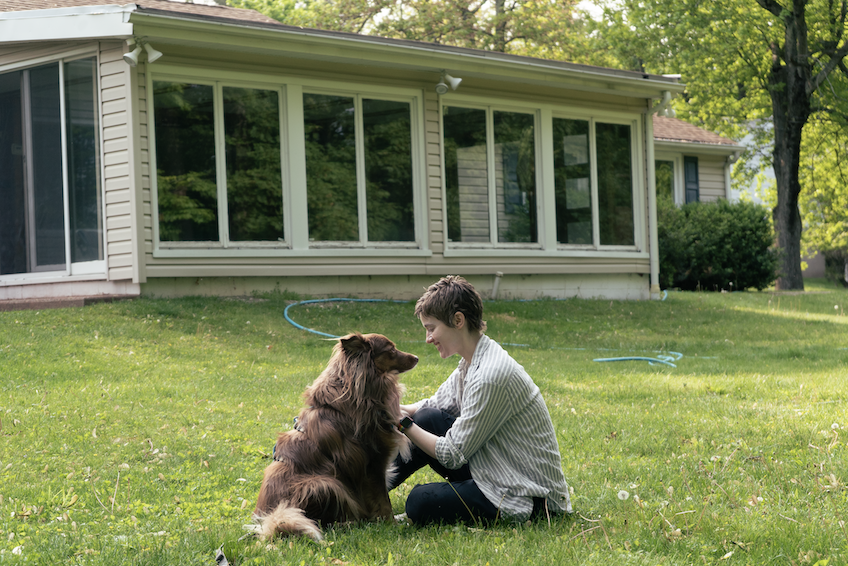
This interview has been edited for length and clarity.
Cover photo courtesy of the artist: “New ‘headshot,’ tried to just exist as myself in front of the camera for the first time.”
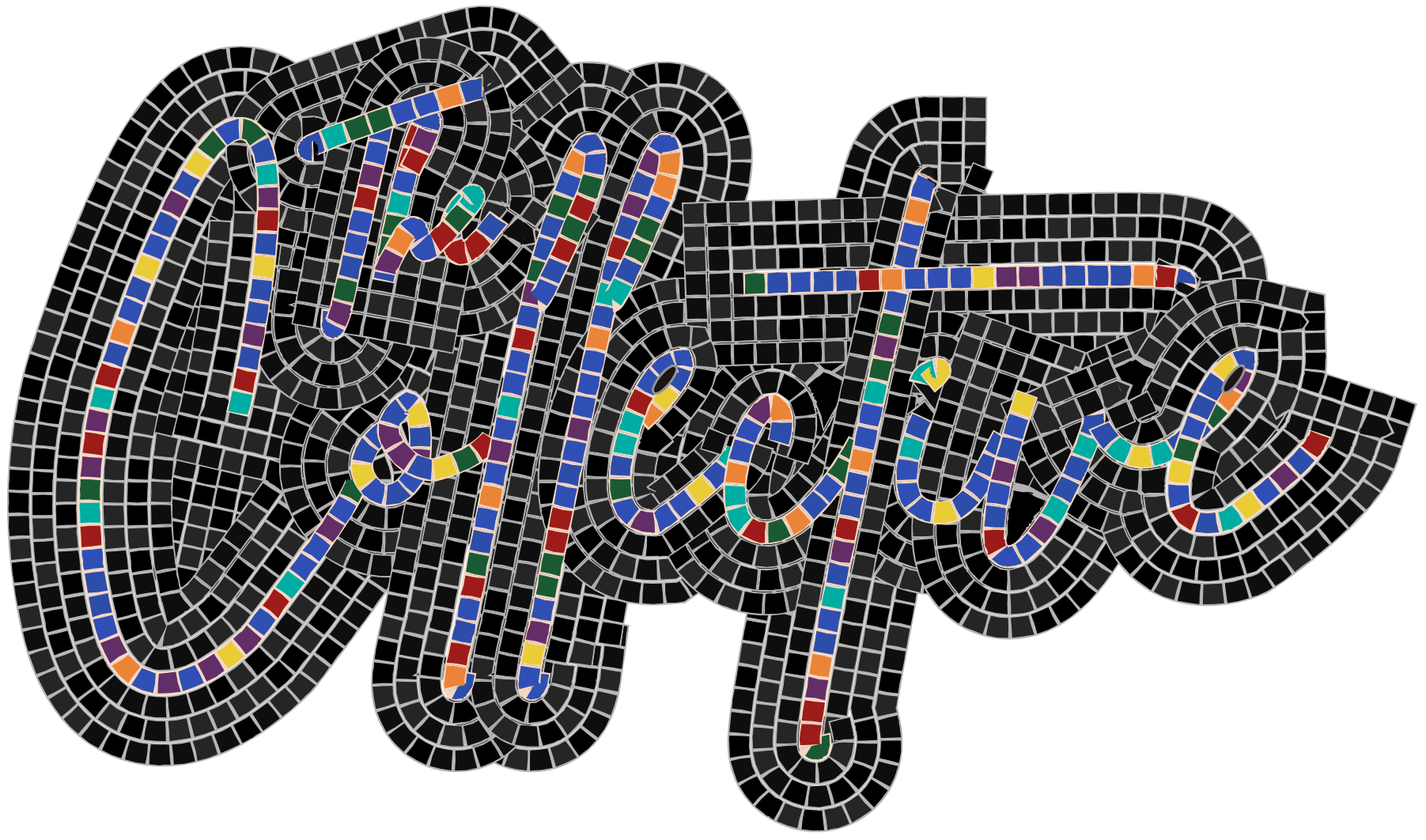
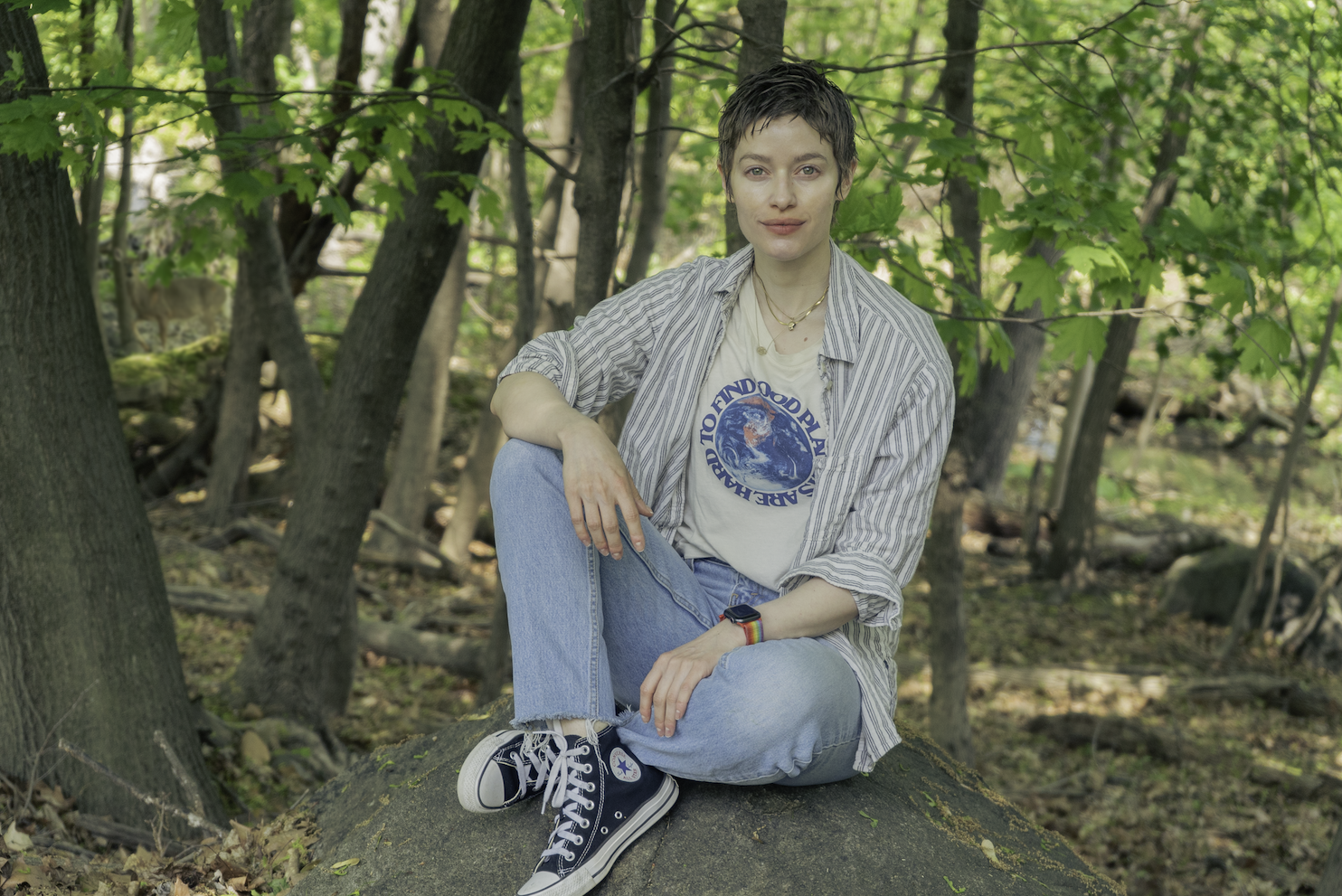
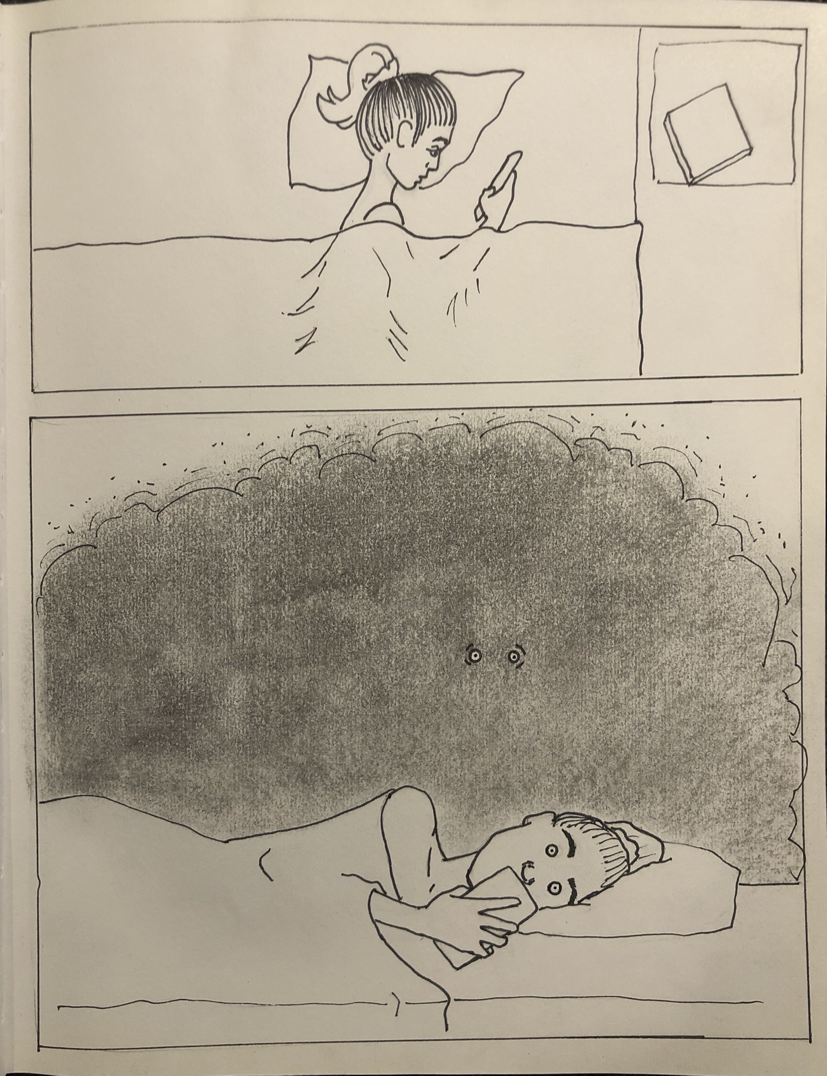

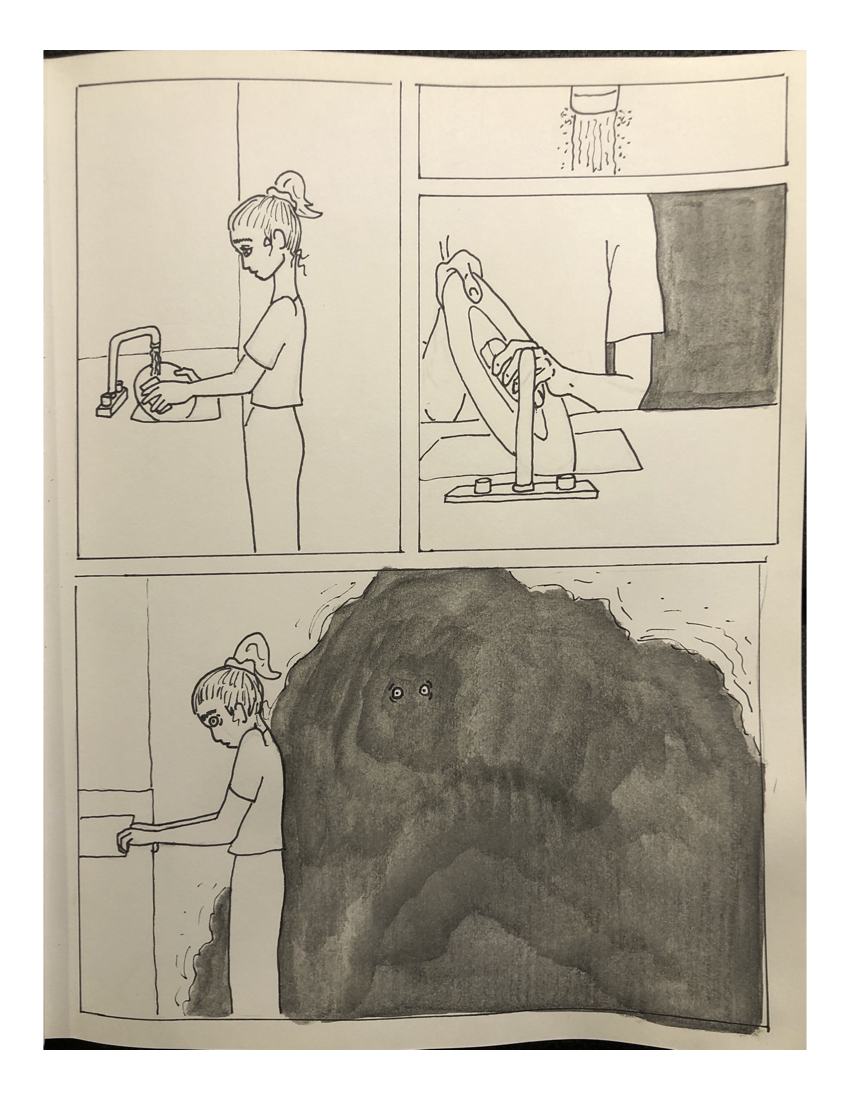
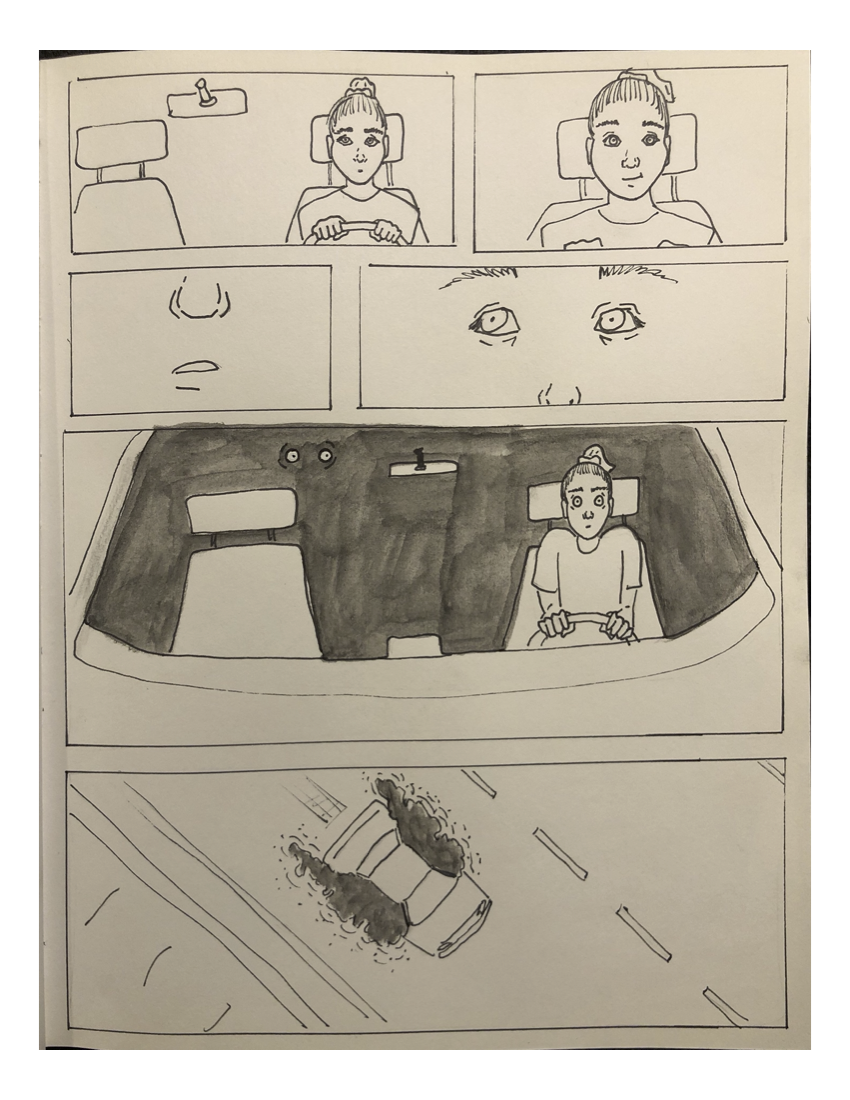
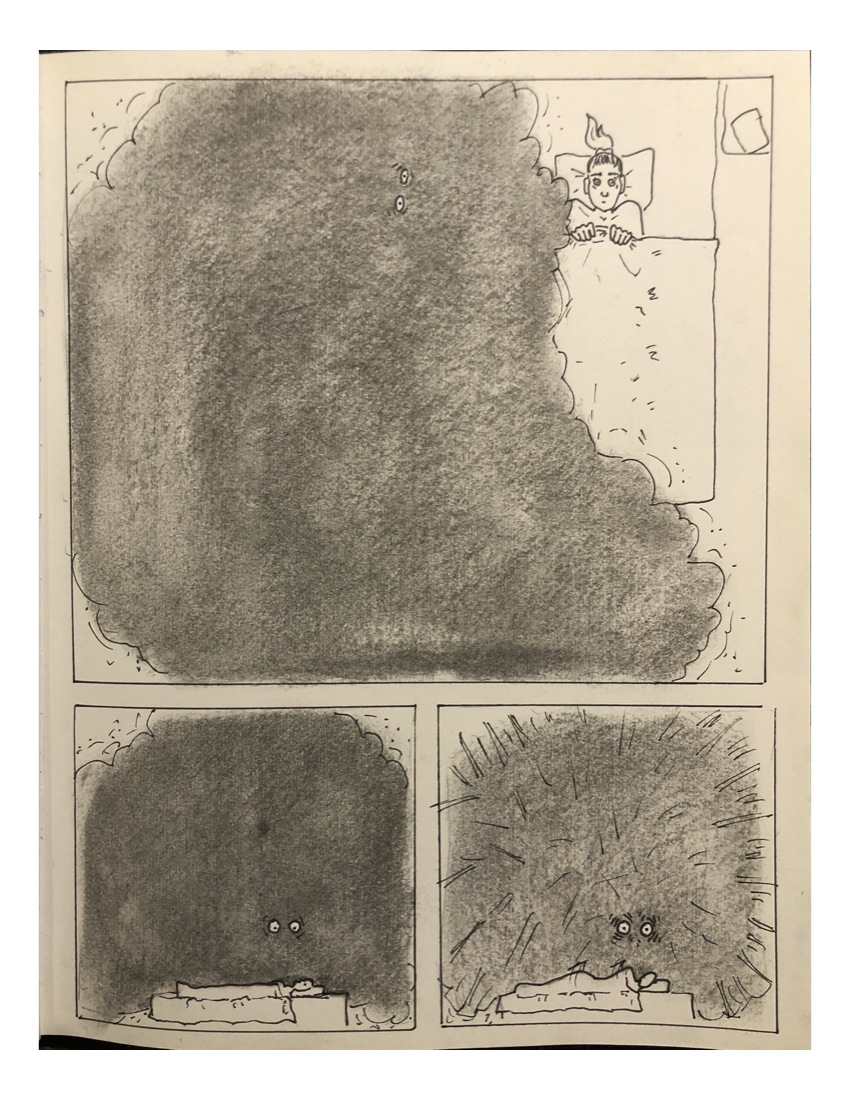
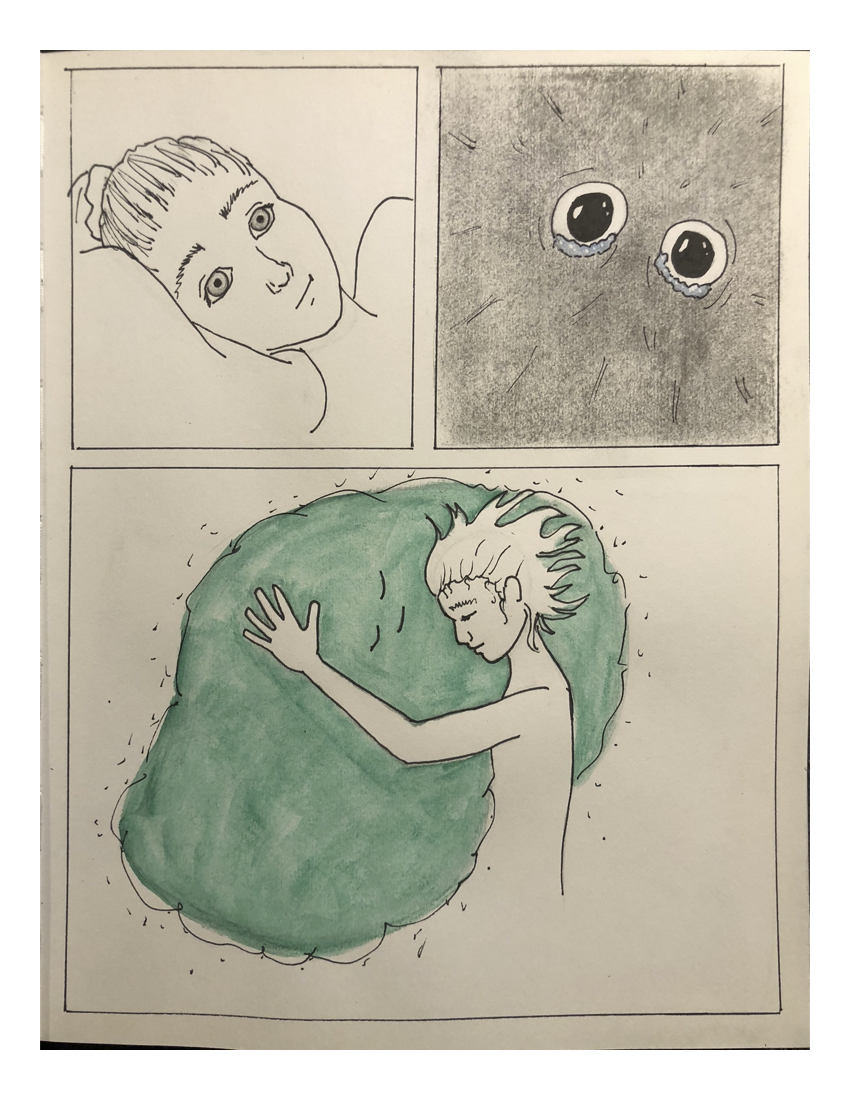
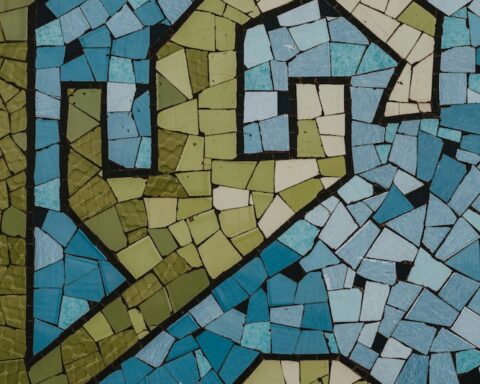
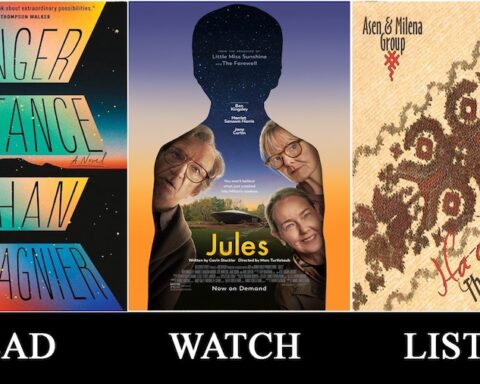
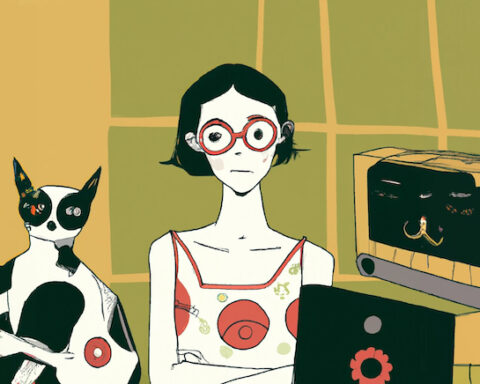
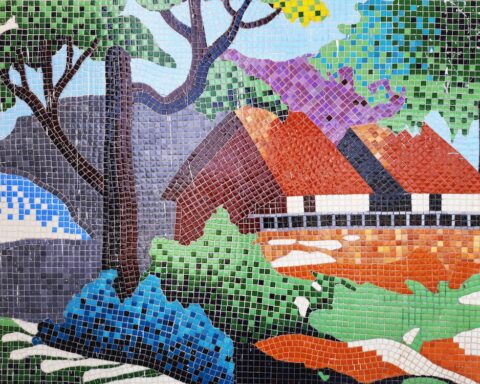
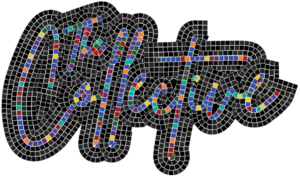
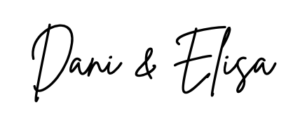
It was nice to catch this update on Evalena. I am sure many people have wondered what happened to her and how she was doing. She was working with some movie makers out this way for a while and seemed like such an awesome person. I hope she finds the happiness she deserves and it is sad to hear about the things that happened to her and all she went through.